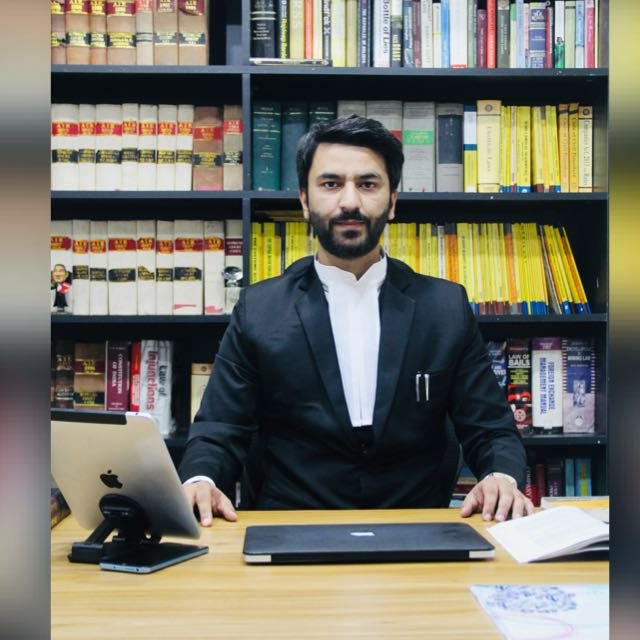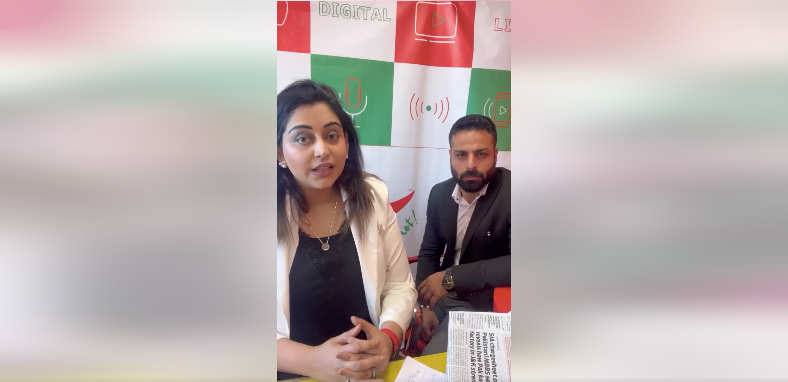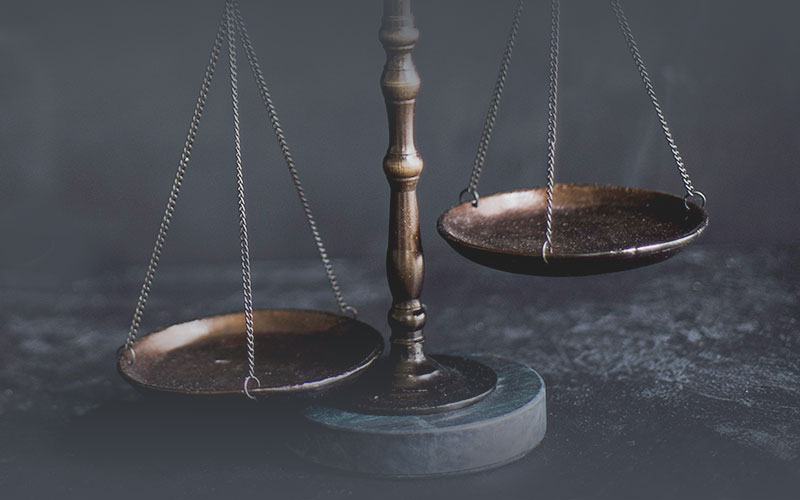Order X Rule 2 of the Code of Civil Procedures, 1908 which deals with “Examination of Parties” is one of the indigenous provisions of the Code of Civil Procedure, which was even present at the time when the “Code of Civil Procedure” was first introduced as Act no. VIII of 1859. The Act was then passed by the Legislative Council of India and received the assent of the Governor General on 22nd March 1859. Under Act of 1859 was Section 125, which dealt with “Oral Examination of the Parties by Court”. That in last 164 years the provision has made its way from “MAY” to “SHALL”, which was once from the reading of the language appeared to be Discretionary, carrying on now appears to be mandatory.
The intent of the Provision is clear from its bare reading that at the first hearing of the Suit, the Court with a view to elucidating matters in controversy in the Suit, examine orally such of the parties to the suit appearing in person or present in court. The term elucidating means to understand something in a clearer way. In Kanwar Singh Saini v. High Court of Delhi, (2012) 4 SCC 307 The Hon’ble Supreme Court guided on the first date of hearing in the following manner, “The date of “first hearing of a suit” under CPC is ordinarily understood to be the date on which the court proposes to apply its mind to the contentions raised by the parties in their respective pleadings and also to the documents filed by them for the purpose of framing the issues which are to be decided in the suit. “
The Question arises whether the Order X Rule 2 is a procedural requirement which is to be followed by the Civil Courts in every case pending before it or the same is a discretionary power vested with the Courts, to be exercised only in cases where the Parties have taken unclear or ambiguous stand in the pleadings. One school of thought strongly bats that Order X Rule 2 of the C.P.C. cannot be use as a method to compel a party to, depose contrary to the averments contained in the pleadings filed by the Party. The Hon’ble High Court of Delhi in Dr Vimla Menon & Anr Vs. Gopinah Menon held that “A bare reading of Order X of the CPC makes it apparent that the question of whether any of the parties to the suit is required to be orally examined on any aspect relevant to the controversy is essentially a matter of discretion. Where a court feels that, in order to elucidate matters in controversy in the suit, oral examination of one or more of the parties to the suit is necessary, the court is empowered to so order”
The Delhi High Court Order simplifies that such power is discretionary and not mandatory and the same is to be exercised only in those cases where the Court is of the opinion in order to elucidate matters in controversy in the suit, Oral examination of one or more of the parties to the suit is necessary.
Though the said Order clarifies the position on Order X power being discretionary , but in the same breath poses a far more practical issue, as to whether , in every case , where the Courts list the matter for Statement under Order X Rule 2 , whether the Court has to pass a detailed order, as to on what ground it seeks presence of the parties in person before the Court and whether there exist any ambiguity in the pleadings , and hence the examination of the Parties becomes imperative.
That the Hon’ble Supreme Court of India in Supreme Court of India in M/S.Kapil Corepacks Pvt.Ltd.& Vs Harbans Lal, 2010 examined the scope of Rule 2 of Order 10 of the Code of Civil Procedure and the correctness of invoking Section 340 of the Code of Criminal Procedure in regard to answers given by a party in an examination by the court under the rule. The Supreme Court was specifically concerned with the 4 questions and 1st being “What is the scope and ambit of Order 10, Rule 2 of the code?” the Hon’ble Supreme Court held that while Rule 1 enables parties to a court proceeding to admit or deny any counter allegations that may not have been expressly or implicitly admitted or denied in the pleading itself, Rule 2 is concerned with the broader objective of elucidating any particular matter that may be controversial in the suit.
The court highlighted that the object of oral examination under Rule 2 is not to record evidence, in as much as the statement made under the aforesaid provision is not under oath nor intended to be a substitute for a regular examination under oath. The court further clarified that the purpose of Rule 2 was not to elicit any admissions, which are merely contemplated in the pleadings during examination of a party by the court under Order 10, Rule 1. The court held that the power under Order 10, Rule 2 cannot be converted into a process of selective cross-examination by the court, calling on any party to admit a document, before the party has an opportunity to put forth its case at the trial.
The position of the Court with respect to the satisfaction of the presiding officer should be on application of mind and that the matters cannot be posted for Examination of the Parties under Order X Rule 2 in a cursory manner. This position of law is well settled and the 2 leading Judgments on Order X Rule, one being Manmohan Das v. Mt. Ramdei & Anr. [AIR 1931 PC 175], the Privy Council observed “No doubt under Order 10, Rule 2, any party present in Court may be examined orally by the Court at any stage of the hearing, and the Court may if it thinks fit put in the course of such examination questions suggested by either party. But this power is intended to be used by the Judge only when he finds it necessary to obtain from such party information on any material questions relating to the suit and ought not to be employed so as to supersede the ordinary procedure at trial as prescribed in Order 18.
The use of the said power should not be done and manner that supersedes the trial , the Hon’ble Court in Vasantharoya Koundan & Ors (AIR 1949 Madras 707), held as follows referring to Order 10 Rule 2 of the Code :
“At the outset it must be pointed out that this (Order 10 Rule 2) does not provide for an examination on oath. This provision was intended to be used to elucidate the matters in controversy in suit before the trial began. This is not a provision intended to be used to supersede the usual procedure to be followed at the trial.”
The provision is intended to elucidate what is obscure and vague in the pleadings. In other words, while the purpose of an examination under Rule 1 is to clarify the stand of a party in regard to the allegations made against him in the pleadings of the other party, the purpose of the oral examination under Rule 2 is mainly to elucidate the allegations even in his own pleadings, or any documents filed with the pleadings.
Supreme Court of India in Vikas Aggarwal vs Anubha on 12 April, 2002 held that “We would like to observe that Order X CPC in an enabling provision providing that the court at the first hearing of the suit shall ascertain from each party about their pleadings. It does not in any manner place any bar on the powers of the court to seek clarification from any party in an appropriate case, at any date earlier than one fixed for framing of issues so as to advance the interest of justice.”
It is clear, from a reading of the said passages that, Order X Rule 2 is intended only to elucidate matters in controversy in proceedings and can be pressed into service only where there is a want of clarity in the pleadings. If, therefore, the pleadings of the parties were wanting in clarity then, in order to identify the exact issue in controversy in the suit, the court could justifiably resort to examination under Order X Rule 2 so as to clear the cobwebs.
The CPC provides for procedure for trial of suits. Procedural law is intended to facilitate the process of justice. As to how a procedural law is to be interpreted and which of the provisions are to be considered as directory or mandatory was considered by Hon’ble the Supreme Court in Mahadev Govind Gharge and others v. Special Land Acquisition Officer, (2011) 6 SCC 321, wherein it has been held that “29. Thus, it is an undisputed principle of law that the procedural laws are primarily intended to achieve the ends of justice and, normally, not to shut the doors of justice for the parties at the very threshold…….”.
The Order X Rule 2 as on date is being used as a delay tactic and an adjournment tactic on account of unavailability of the Parties, the same obstructs the courts from “Framing of Issues” which consequently delays the trial. That many trial courts also, as a matter of practice , soon after completion of pleading, post the matter for examination of parties in a cursory manner, without respecting the intent of the Provision, which ultimately causes inordinate delay in the process of achieving Justice.
The Article is authored by Viqas Malik and co-authored by Areeba Ahad who are practising at the J&K High Court and work at “Malik and Romaan Law offices, Srinagar”. The Authors can be reached at Malikandromaan@gmail.com.




